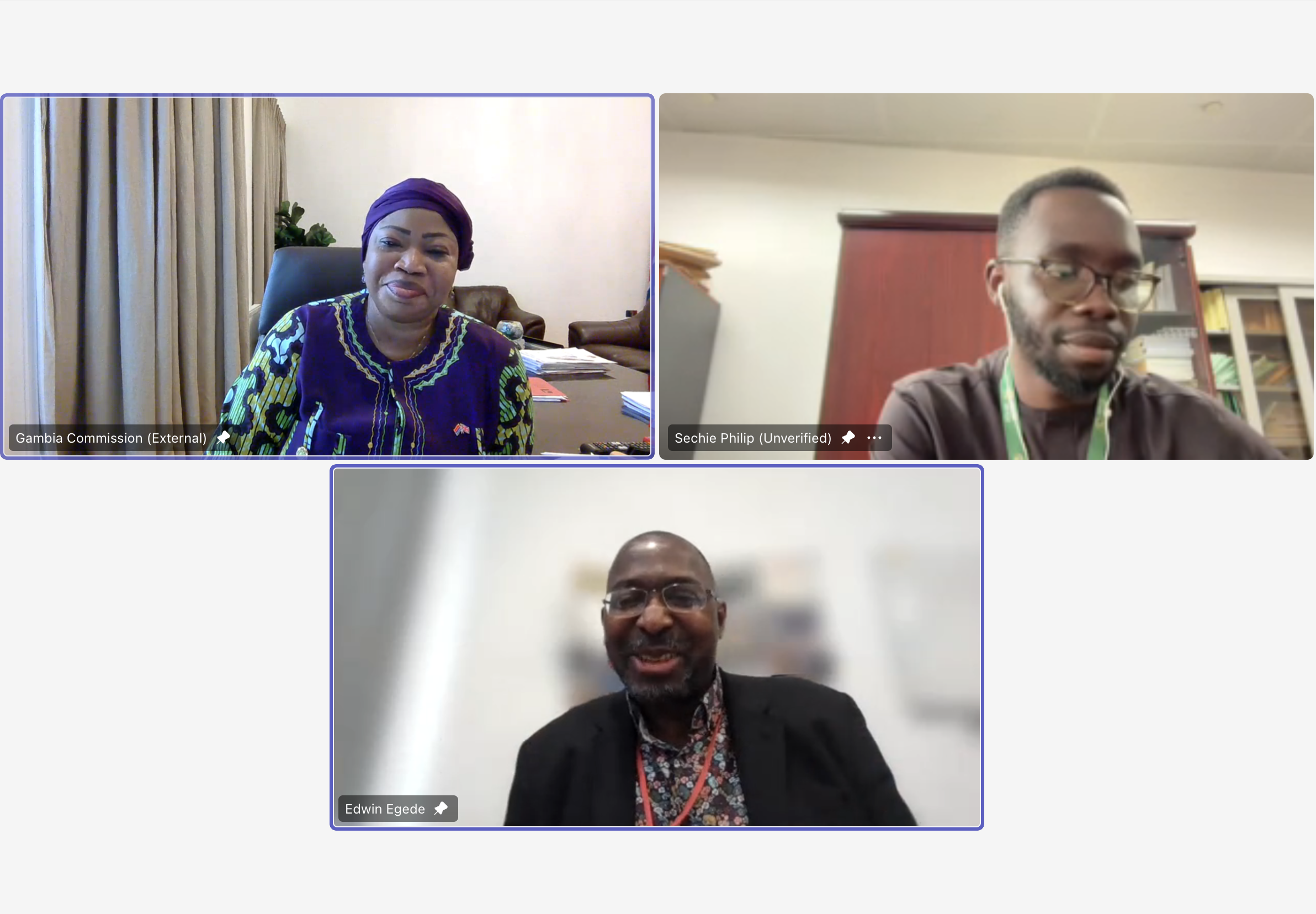Exploring Multilateralism and International Criminal Justice: Highlights from Guest Lecture
2 April 2025H.E. Dr Fatou Bom Bensouda, former International Criminal Court (ICC) Prosecutor
Mr Sechie Philip, Associate Legal Officer, African Union Commission
On March 28, 2025, the Centre of International Law and Multilateralism (CILM) hosted a guest lecture exploring Multilateralism and International Criminal Justice. The lecture featured two esteemed speakers; H.E. Dr Fatou Bom Bensouda and Mr Sechie Philip and involved discussions on the relationships between the multilateralism, international criminal justice and the ICC . The talk highlighted the position of the ICC as the heart of international cooperation on global international criminal justice.
Dr. Bensouda and Mr. Philip highlighted how the ICC’s work contributes to the larger framework of international law by addressing impunity for the gravest crimes, and the importance of maintaining a victim-centered approach in international criminal justice. This focus on victims ensures that international criminal justice mechanisms prioritize the needs and rights of those most affected by crimes such as war crimes, genocide, and crimes against humanity.
A central theme of the talk was the evolving role of the ICC within the broader landscape of international law. Both speakers emphasized that the ICC represents more than just a judicial body; it is a symbol of international cooperation and the collective responsibility of states to uphold international criminal justice. However, they also acknowledged the significant challenges faced by the ICC in achieving universal support for its mandate.

Following the lecture, attendees engaged in discussion, posing several key questions that sparked critical dialogue on the complexities of international criminal justice and multilateralism:
Question: Why have some large powers failed to join the ICC, such as the USA?
Answer Summary: Dr. Bensouda and Mr. Philip explained that some large powers, particularly the United States, have refrained from joining the ICC due to concerns over sovereignty, which may suggest their reluctance to participate. Furthermore, some countries have strong governing bodies to deal with such large crimes themselves, therefore may feel the lack of need for another international governing body when one already exists. However, overall, engagement with international bodies such as the ~ICC has always come down to a drive of political will. When there is a lack of political accountability for governments and states, then we see a lack of commitment to international bodies.
Question: What does the non-compliance of states mean for international cooperation and multilateralism?
Answer Summary: States often have many reasons for not complying with ICC mandates, often linked to many complex intrastate and international contentions. The question of state non-compliance was addressed through an examination of real-world examples, such as the case of Sudanese President Omar al-Bashir. Despite an ICC arrest warrant for al-Bashir on charges of genocide and war crimes, many African Union (AU) member states declined to enforce the ICC’s mandate. An example of this is the Al-Bashir case whereby many AU member states did not want to arrest Al-Bashir, despite the ICC rulings. This had varying reasons such as the AU having resolutions directly contravening ICC suggestions, such as not arresting sitting heads of state due to links with destabilisation. Further, country specific motives, such as Chadian interests in national security, provide other compelling reasons for non-states compliance. The speakers argued that non-compliance reflects broader issues within international cooperation and multilateralism, particularly when there is a lack of political accountability at the national level. Without the political will to support international mandates, multilateral institutions like the ICC can struggle to enforce their decisions, highlighting the delicate balance between international law and state sovereignty.
Conclusively, this event provided a crucial platform for discussion on the complexities of international criminal justice and multilateralism. Dr. Bensouda and Mr. Philip provided insightful perspectives on the challenges facing the ICC and how these issues fit into the larger landscape of global justice. While the ICC faces many obstacles in terms of its reach and authority, the lecture highlighted the importance of keeping the conversation alive about how international law can adapt to meet today’s challenges.